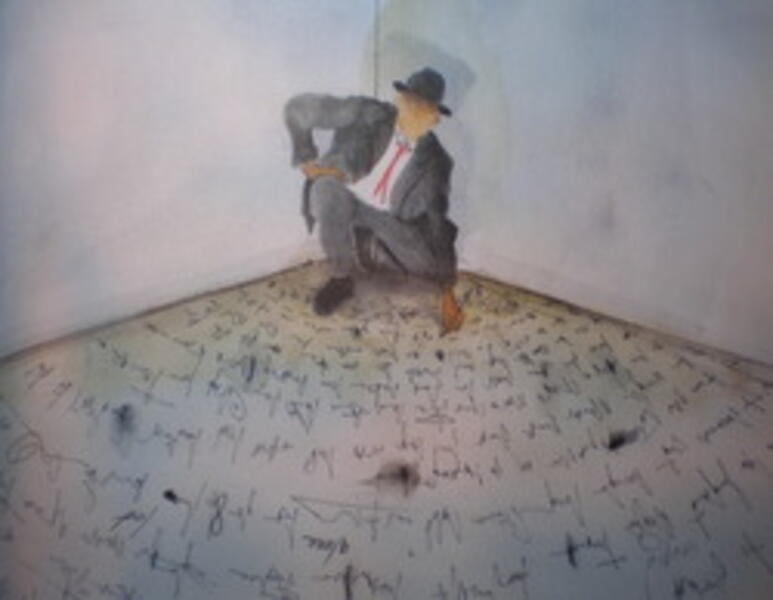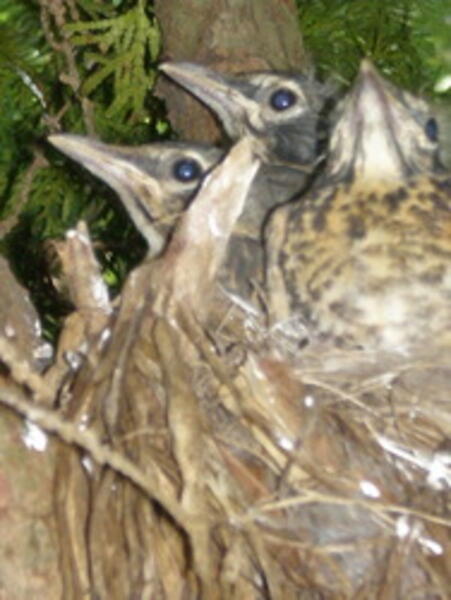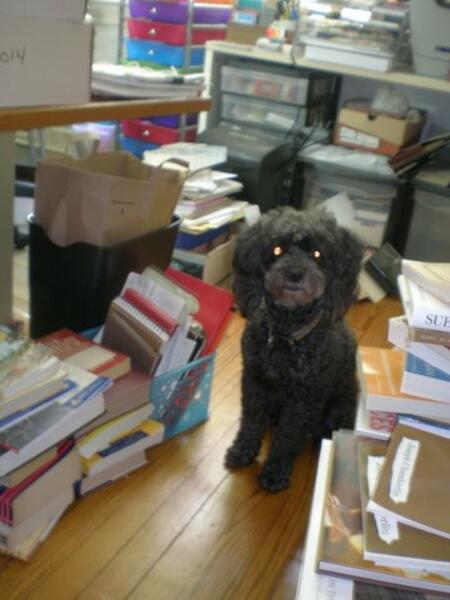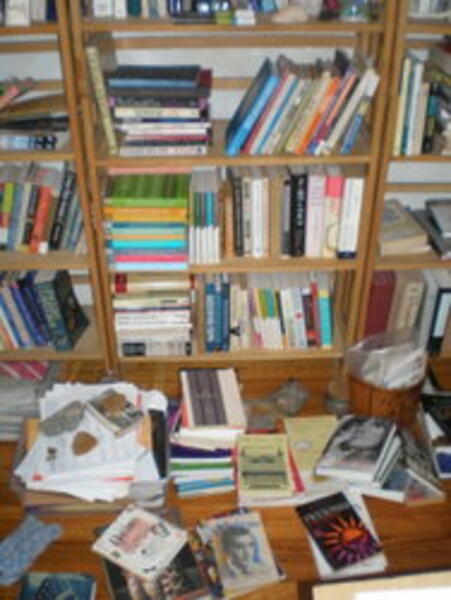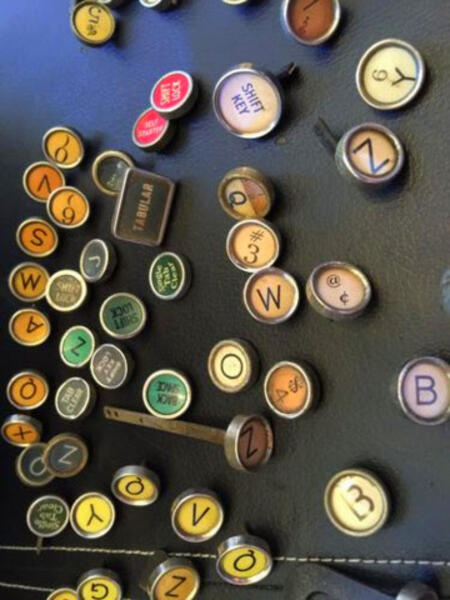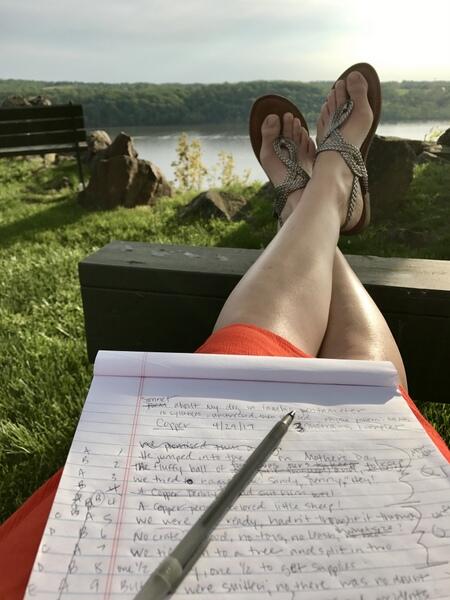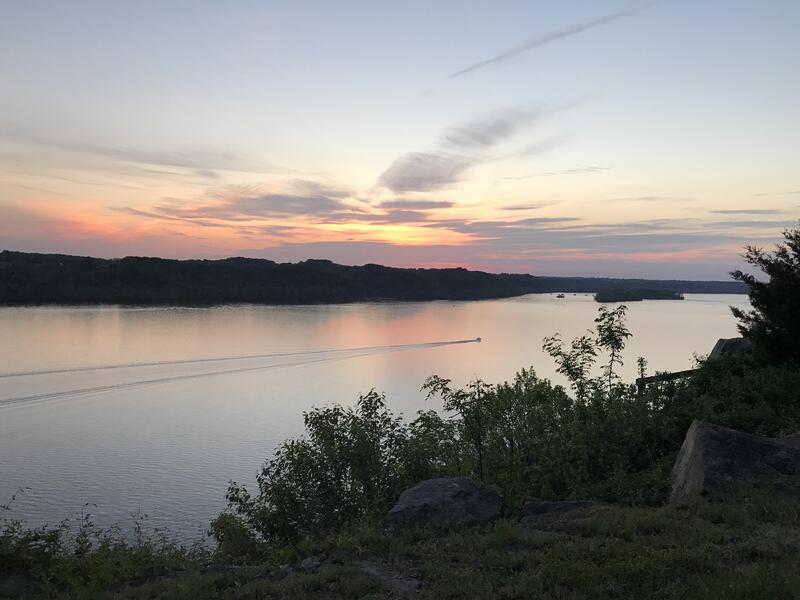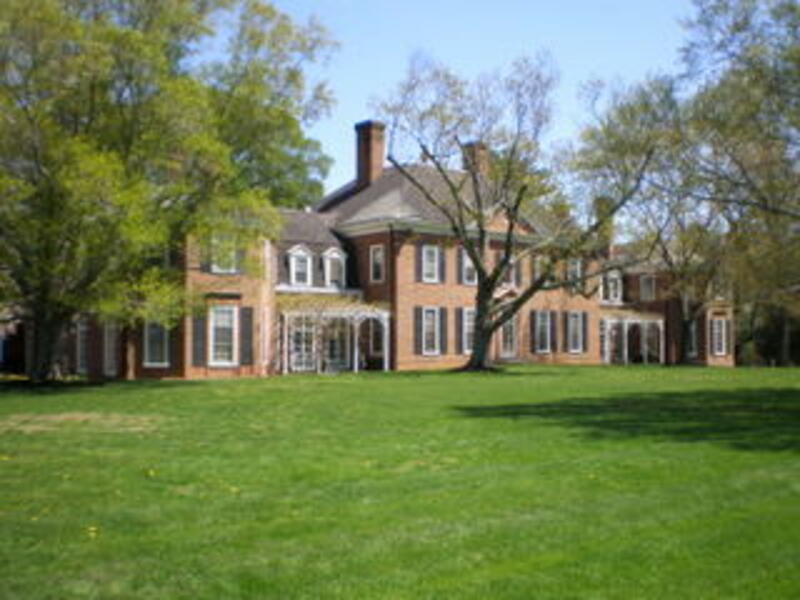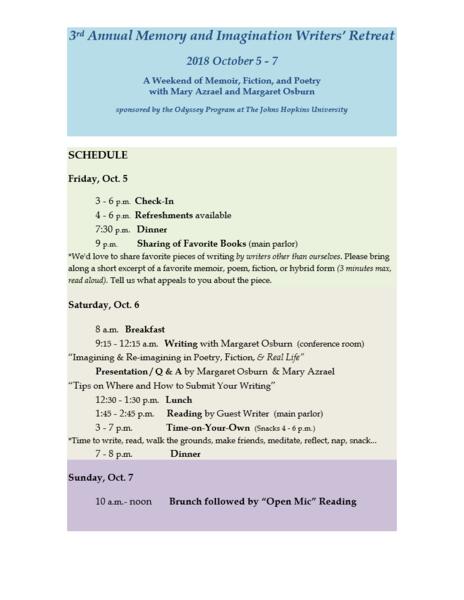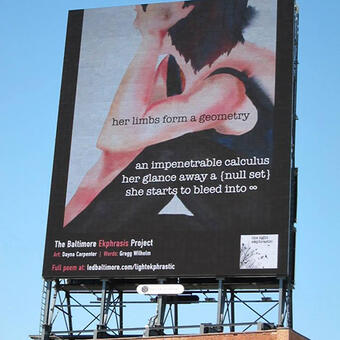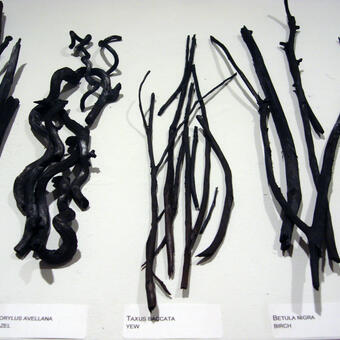About Margaret
Baltimore City

Margaret Osburn is a nonfiction and fiction writer, editor, photographer, and writing coach. She is the writer/cinematographer of a documentary film, Once There Was A City, which aired on PBS, the recipient of state (IN) press awards, and a winner in the 2014 Salamander Fiction Contest. Recent short stories appear in Salamander, Existere, CALYX, and Raleigh Review. Current projects include a novel, The Jelly Women, and a collection of short stories, … more
Jump to a project:
WHEN DESIRE CAN'T FIND ITS OBJECT: Stories about Confused Relationships
ARTIST STATEMENT: "On Burning Down the House"
A neighbor stopped by the other day to say he'd read a couple of my short stories: his eyes locked mine. His gaze, so fixed, portended the expectation that if he stared hard enough he might be able to see a panorama of oddball objects and people, fractured desires, oily possums and resurrection ferns, like a shower of floaters drifting off the back of my retina. “I’d sure like to see inside your head,” he said softly. He is a therapist.
My own desire to see inside heads has plagued and motivated me from childhood throughout my writing career. It is also what gave me pause mid-way to think that, despite competence as a writer, perhaps I could accomplish greater good as a social worker or psychologist.
As a talk therapist, I could put my interviewer skills to work, closely listening and asking questions that would support individuals like myself who seek answers hidden in life stories. So in that season of rethinking, I began to re-school, to prepare myself for the pursuit of advanced degree(s) in psychology; this, even as I continued to write for a living. Then something providential happened, I was accepted into a summer fiction writing workshop at Johns Hopkins University (JHU) and thereafter invited to teach in the JHU Odyssey program and then their Osher and then their undergraduate programs. Then Smithsonian Associates called. ...My vocation had found me, even if “lecturer” or “adjunct” and “honorariums” didn’t pay the bills. But from that time, my life as a writer would evolve to higher levels of literary inquiry and emotional richness as a teacher and coach. And writing, as my student writers are quick to point out, is cheap therapy. So I feel I am helping people accomplish what’s worthwhile.
Over the past 30 years I’ve listened to and read, and read again, astounding stories by people who have lead the most wildly adventurous, calamitous, inventive, or normal of lives. I’ve encouraged and counseled. I’ve squiggled and marked up pages like a zealous Jackson Pollock, providing honest, perhaps tough feedback, pushing new writers to improve their craft, and encouraging seasoned writers to take bigger risks. With every story, I want the writer to know her tools, make decisions, take control. Plumb the depths. Find insight. Experience epiphany.
Tall orders, yes.
And, at the very least, I want the writer to know and remember that she has permission to write. That the reward to writing will be more than the remembering and recording. That with any luck at all, she will discover an element of surprise, a personal insight--and there will be a thrill to it.
I’ve incorporated into my own writing process, much of what I teach. So let’s say I know the tricks for getting a piece of writing started, have gotten to know my story characters, decided on a story problem and, probably, have conceived of a basic design or structure, which will help me with how I approach and develop what I feel is of greatest importance to the story, even before I know the story’s actual course of events (unfathomable, I know, but not).
For my short story, “When Desire Can’t Find Its Object,” I chose description as the primary development strategy. In writing about identity and desire, not necessarily romance, the visual images (the objects) provide the psychological subtext, a changing venue of ephemeral connection.
All objects and places are haunted. This becomes clear in The Jelly Women linked stories and novel. The entrepreneurial grandma attaches stories to the items for sale in her store. Through her storytelling, objects are exposed and prized for their past lives.
Throughout my writing process, which includes throwing words out on their ears when they don’t sound quite right or don’t add meaning, I keep peeping into that flotsam that blurs my street vision to pull out curious bits--don’t ask me where they came from. It’s dreamlike in there and bits are shape changers. But I’m happy to examine each for texture and substance and then watch and listen as one bit mixes it up with the others. Mostly, it’s after I’ve given the bits an essential work methods pep talk (that everything will be ok, that it’s ok, that it’s really ok) that surprising, unknowable things happen. And that’s the beauty of it--the surprise of how far the subconscious pushes itself into your story--and what it might have to say. For instance, there is nothing in these stories I’ve written that is true about me. Or is there?
I’m still sorting that out...
One last confession, a practical matter really: before I sit to write, I must find a comfortable writing chair, all the while resisting the temptation to jump up, for all the distractions, and burn down the house.
My house’s out of the ordinary
That’s right
Don’t want to hurt nobody
Some things sure can sweep me off my feet
Burning down the house
TALKING HEADS, "Burning Down the House," Speaking Tongues album
My own desire to see inside heads has plagued and motivated me from childhood throughout my writing career. It is also what gave me pause mid-way to think that, despite competence as a writer, perhaps I could accomplish greater good as a social worker or psychologist.
As a talk therapist, I could put my interviewer skills to work, closely listening and asking questions that would support individuals like myself who seek answers hidden in life stories. So in that season of rethinking, I began to re-school, to prepare myself for the pursuit of advanced degree(s) in psychology; this, even as I continued to write for a living. Then something providential happened, I was accepted into a summer fiction writing workshop at Johns Hopkins University (JHU) and thereafter invited to teach in the JHU Odyssey program and then their Osher and then their undergraduate programs. Then Smithsonian Associates called. ...My vocation had found me, even if “lecturer” or “adjunct” and “honorariums” didn’t pay the bills. But from that time, my life as a writer would evolve to higher levels of literary inquiry and emotional richness as a teacher and coach. And writing, as my student writers are quick to point out, is cheap therapy. So I feel I am helping people accomplish what’s worthwhile.
Over the past 30 years I’ve listened to and read, and read again, astounding stories by people who have lead the most wildly adventurous, calamitous, inventive, or normal of lives. I’ve encouraged and counseled. I’ve squiggled and marked up pages like a zealous Jackson Pollock, providing honest, perhaps tough feedback, pushing new writers to improve their craft, and encouraging seasoned writers to take bigger risks. With every story, I want the writer to know her tools, make decisions, take control. Plumb the depths. Find insight. Experience epiphany.
Tall orders, yes.
And, at the very least, I want the writer to know and remember that she has permission to write. That the reward to writing will be more than the remembering and recording. That with any luck at all, she will discover an element of surprise, a personal insight--and there will be a thrill to it.
I’ve incorporated into my own writing process, much of what I teach. So let’s say I know the tricks for getting a piece of writing started, have gotten to know my story characters, decided on a story problem and, probably, have conceived of a basic design or structure, which will help me with how I approach and develop what I feel is of greatest importance to the story, even before I know the story’s actual course of events (unfathomable, I know, but not).
For my short story, “When Desire Can’t Find Its Object,” I chose description as the primary development strategy. In writing about identity and desire, not necessarily romance, the visual images (the objects) provide the psychological subtext, a changing venue of ephemeral connection.
All objects and places are haunted. This becomes clear in The Jelly Women linked stories and novel. The entrepreneurial grandma attaches stories to the items for sale in her store. Through her storytelling, objects are exposed and prized for their past lives.
Throughout my writing process, which includes throwing words out on their ears when they don’t sound quite right or don’t add meaning, I keep peeping into that flotsam that blurs my street vision to pull out curious bits--don’t ask me where they came from. It’s dreamlike in there and bits are shape changers. But I’m happy to examine each for texture and substance and then watch and listen as one bit mixes it up with the others. Mostly, it’s after I’ve given the bits an essential work methods pep talk (that everything will be ok, that it’s ok, that it’s really ok) that surprising, unknowable things happen. And that’s the beauty of it--the surprise of how far the subconscious pushes itself into your story--and what it might have to say. For instance, there is nothing in these stories I’ve written that is true about me. Or is there?
I’m still sorting that out...
One last confession, a practical matter really: before I sit to write, I must find a comfortable writing chair, all the while resisting the temptation to jump up, for all the distractions, and burn down the house.
My house’s out of the ordinary
That’s right
Don’t want to hurt nobody
Some things sure can sweep me off my feet
Burning down the house
TALKING HEADS, "Burning Down the House," Speaking Tongues album
ANNUAL JHU WRITERS' RETREAT: Poetry, Memoir, & Fiction
In 2015 when The Johns Hopkins Odyssey director asked poet Mary Azrael and me if we had any thoughts on how to use the gift of a generous donor, we conferred and agreed: We wanted to offer writers the luxury of a laid back, neuron-igniting writers’ retreat.
In 2016, 2017, and 2018, we did just that. And, we are now planning a 4th annual, three-day “Memory and Imagination Writers’ Retreat.” We believe the opportunity to mingle with other writers in a supportive writing environment (no meals to cook, no beds to make) inspires great writing.
In 2016, 2017, and 2018, we did just that. And, we are now planning a 4th annual, three-day “Memory and Imagination Writers’ Retreat.” We believe the opportunity to mingle with other writers in a supportive writing environment (no meals to cook, no beds to make) inspires great writing.
